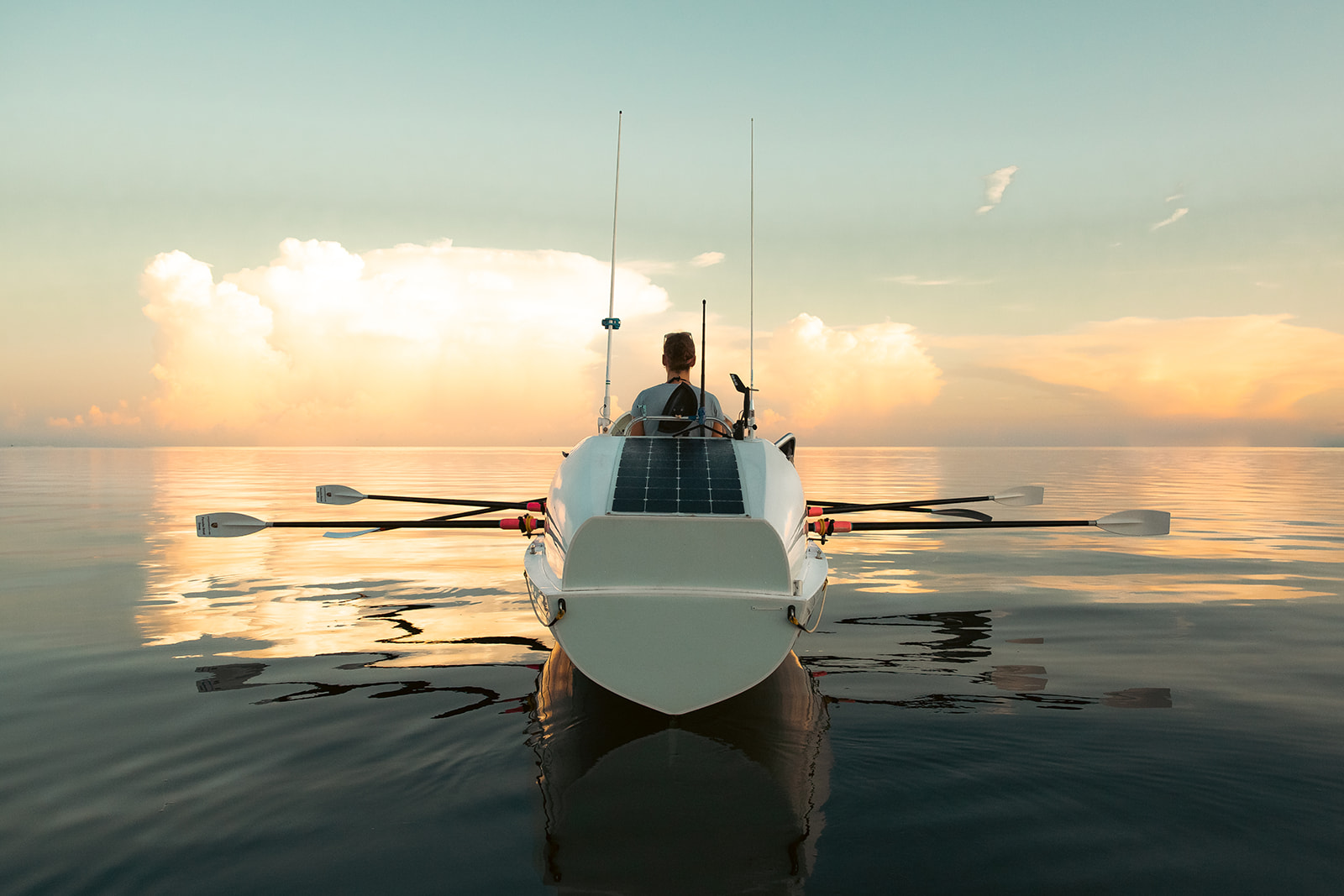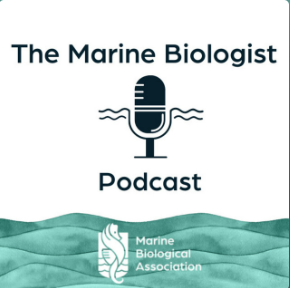Four marine scientists are rowing across the Atlantic in the cause of greater accessibility and inclusivity in marine science. By Noelle Helder.
UPDATE, January 2024: The Salty Science team finished the row in 38 days, 18 hours, and 56 minutes, making them the Women's class winners and seventh overall out of 38 crews from around the world.
I wake with a start to the repetitive beep of my alarm: 3.50 a.m. I dare to close my eyes again for the briefest moment before willing my stiff, aching body to sit up, careful not to smash my head against the low ceiling. At 5’10”, stretching out inside this tiny cabin feels like trying to do a yoga class inside a phone booth. The sea rocks our floating home gently back and forth as I sit in the darkness. Beneath me, my mattress is damp and salty, the humid air still and stifling.
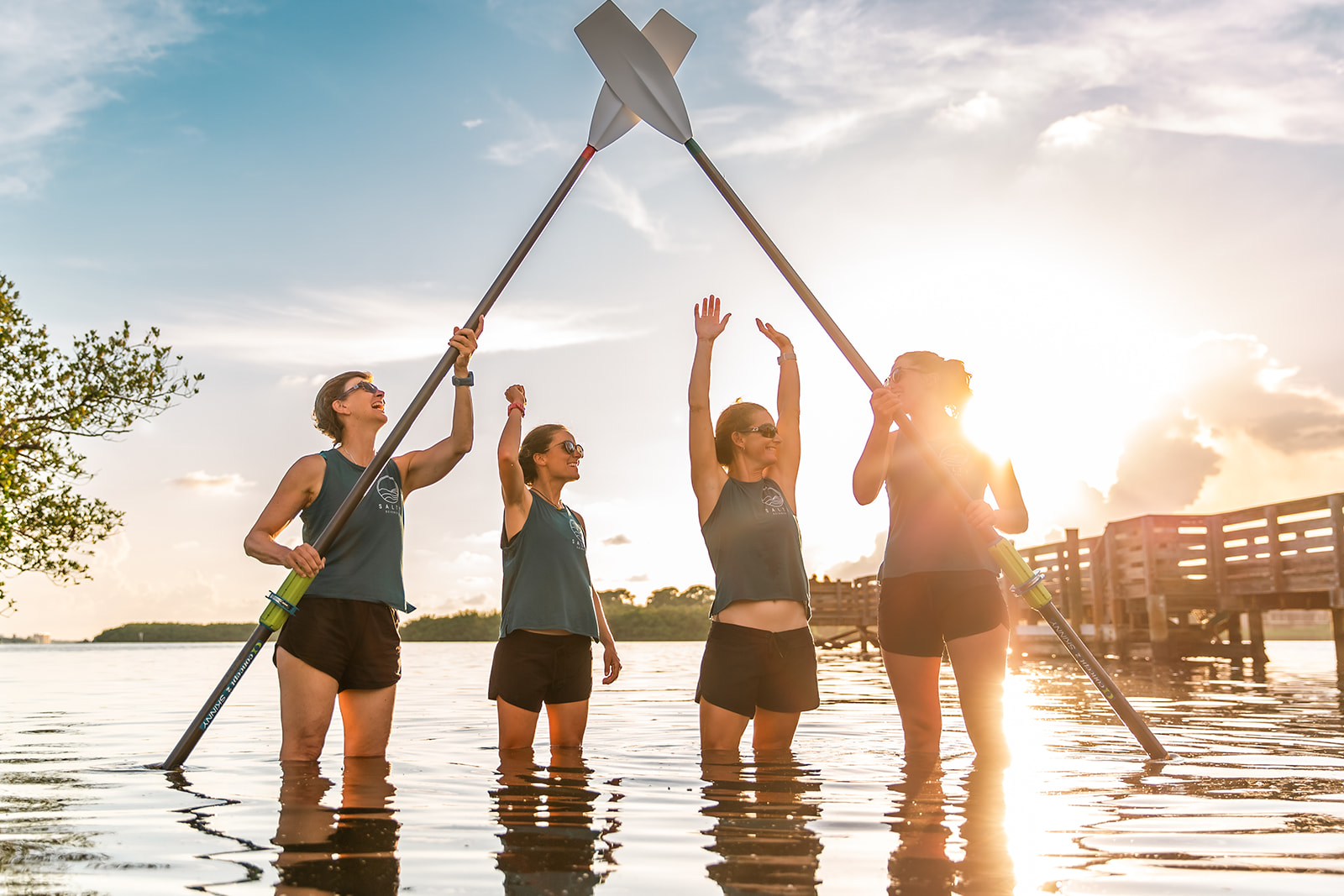
The team: Dr Chantale Bégin, Isabelle Côté, Lauren Shea, and Noelle Helder.
I glance down at my watch—only 5 minutes before my shift. I flip a switch, flooding the cabin with an eerie red light and buckle up my makeshift harness: a climbing harness-meets sailing- tether combo. Its crown jewel is a small yellow box, my personal locator beacon. After lacing my shoes and guzzling some water, I muster the will to eat a few nuts—an essential boost at this unforgiving hour. Emerging from the cabin, I clip myself to the jack lines running across the deck of our 8.5-metre ocean rowing boat as I step into the darkness.
We are 22 hours in to a 36-hour training row, 30 miles offshore in the Gulf of Mexico in mid-July. I hear a quiet good morning from my two teammates, Isabelle and Lauren, who are currently rowing on deck. ‘Ready when you are’, I mumble half-heartedly, music to Isabelle’s ears as she passes on the rowing baton. We tango around a mass of oars and lines to swap positions while the boat continues to roll beneath us. I wince as my blistered hands grasp the oars, timing my entry with Lauren’s to avoid smashing the blades together as we settle into a steady rhythm. Our routine onboard is simple: 2 hours of rowing, 2 hours of rest in an endless cycle around the clock. The exhaustion is starting to sink in now, adding an extra challenge to even the simplest of tasks. Just imagine how you’re going to feel after 45 days of this, I think to myself.
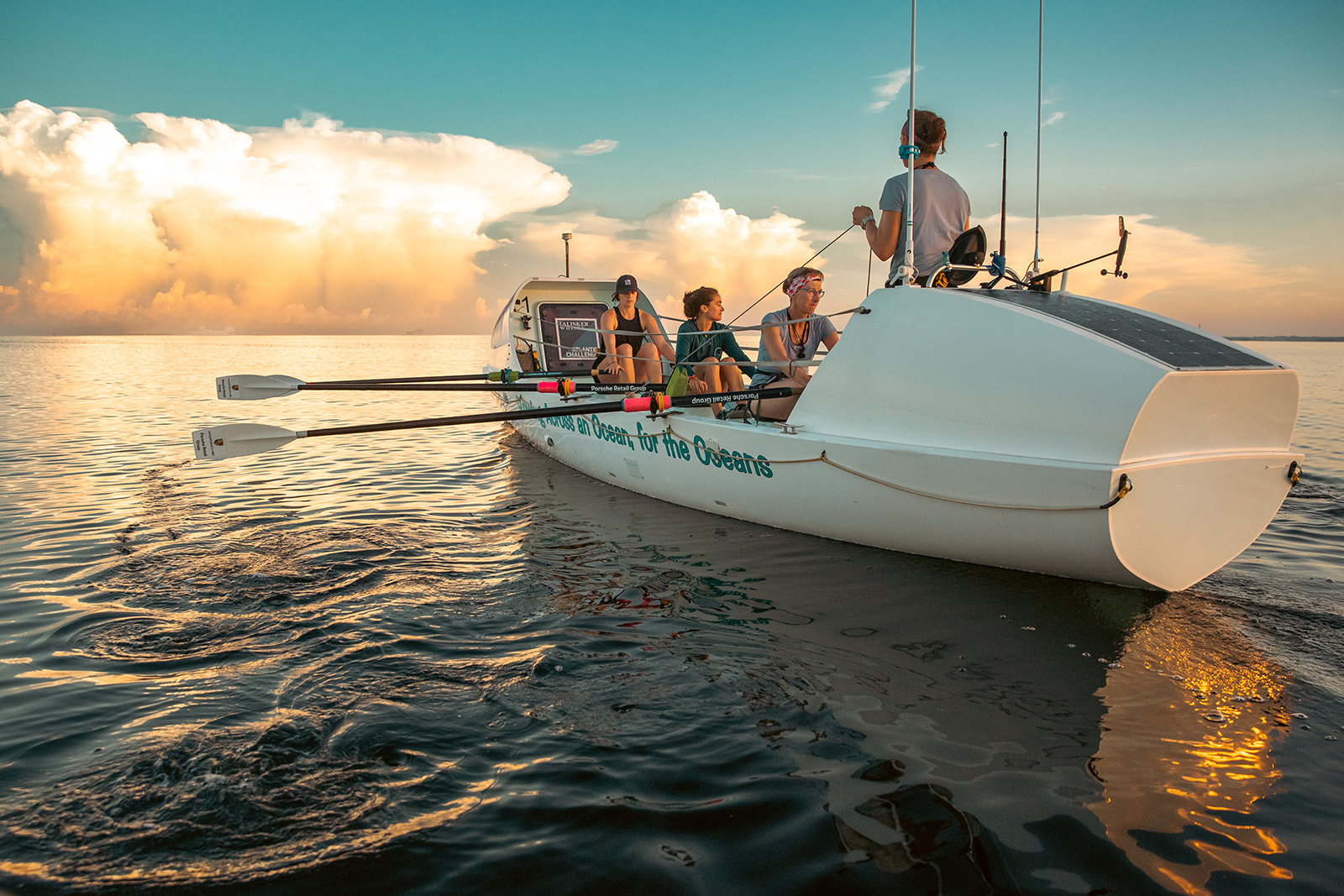
Because our team of four women marine scientists will row 3,000 miles across the Atlantic Ocean. The challenge is straightforward: using nothing but your own power, propel yourself across an ocean. We will bring everything we need with us: food (dehydrated meals and lots of chocolate bars), a solar-powered desalinator to make freshwater, an extensive medical kit, and spare parts for anything that could break. Having departed from the Canary Islands in mid-December, our destination will be the small Caribbean island of Antigua by the end of January. Even with 3 years of preparation behind us, we will be pushed to our physical and mental limits as we face whatever the Atlantic has in store for us.
'Even with 3 years of preparation behind us, we will be pushed to our physical and mental limits as we face whatever the Atlantic has in store for us.'
The four of us—Lauren, Chantale, Isabelle, and myself—represent three ‘generations’ of marine scientists. Lauren and I became fast friends as undergraduate students in a Caribbean field course, spending the first days of our friendship diving and learning together. Our professor, Dr Chantale Bégin, was an immediate inspiration as she balanced her young children on her arms while instructing coral reef research techniques. Chantale had completed her PhD at Simon Fraser University under the supervision of our final teammate, Dr Isabelle Côté. Isabelle is a distinguished professor and a Royal Society of Canada Fellow, with an uncanny giddiness at seeing any marine critter, no matter how large or small.
The big question: why?
As a team, we share extensive expertise in marine science, sailing, leading remote field campaigns, endurance races, and just generally being happy to shake off our creature comforts in the name of science or adventure. What we did not have, however, was any experience rowing. Hours on the rowing machine became an integral component of our daily routines.
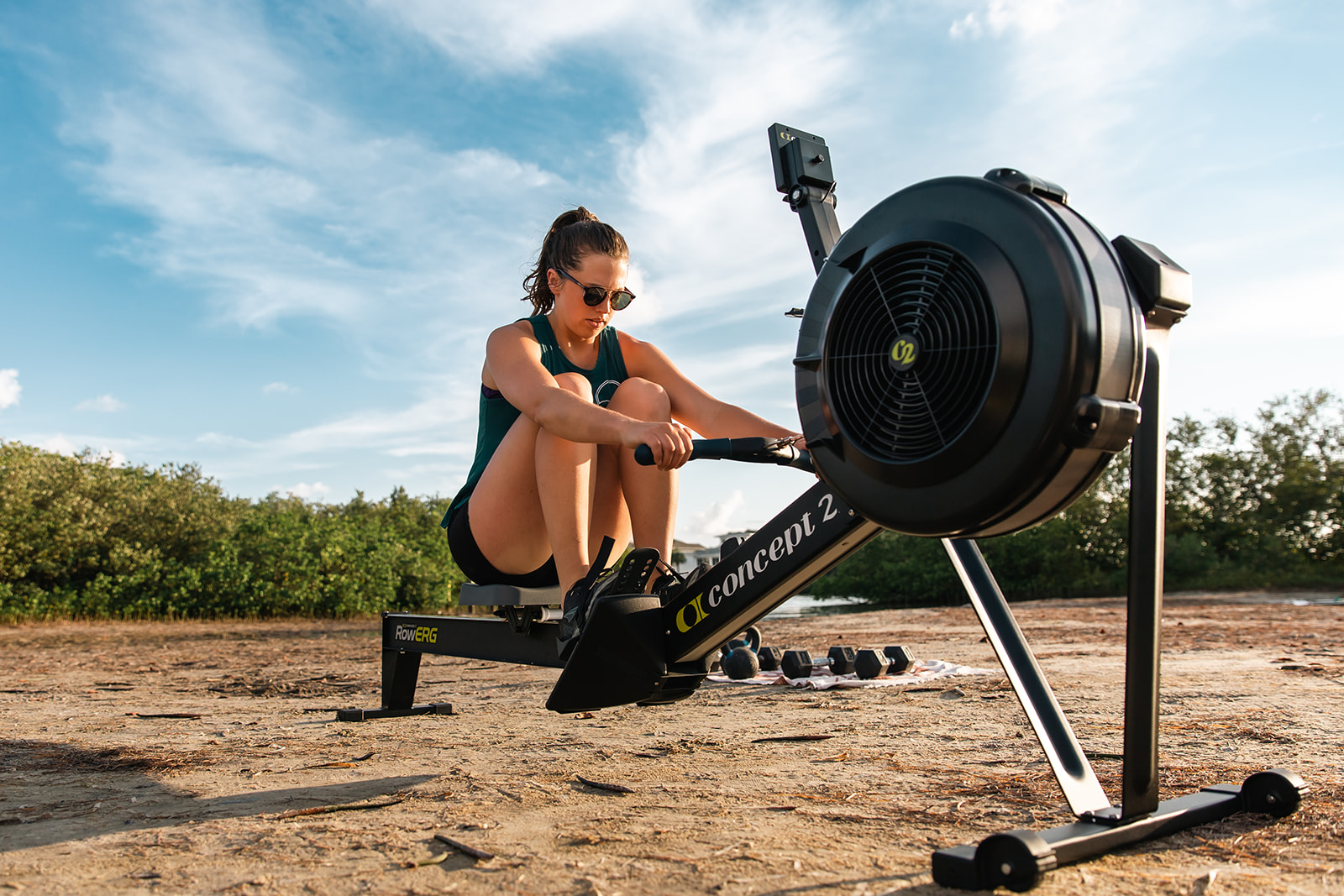
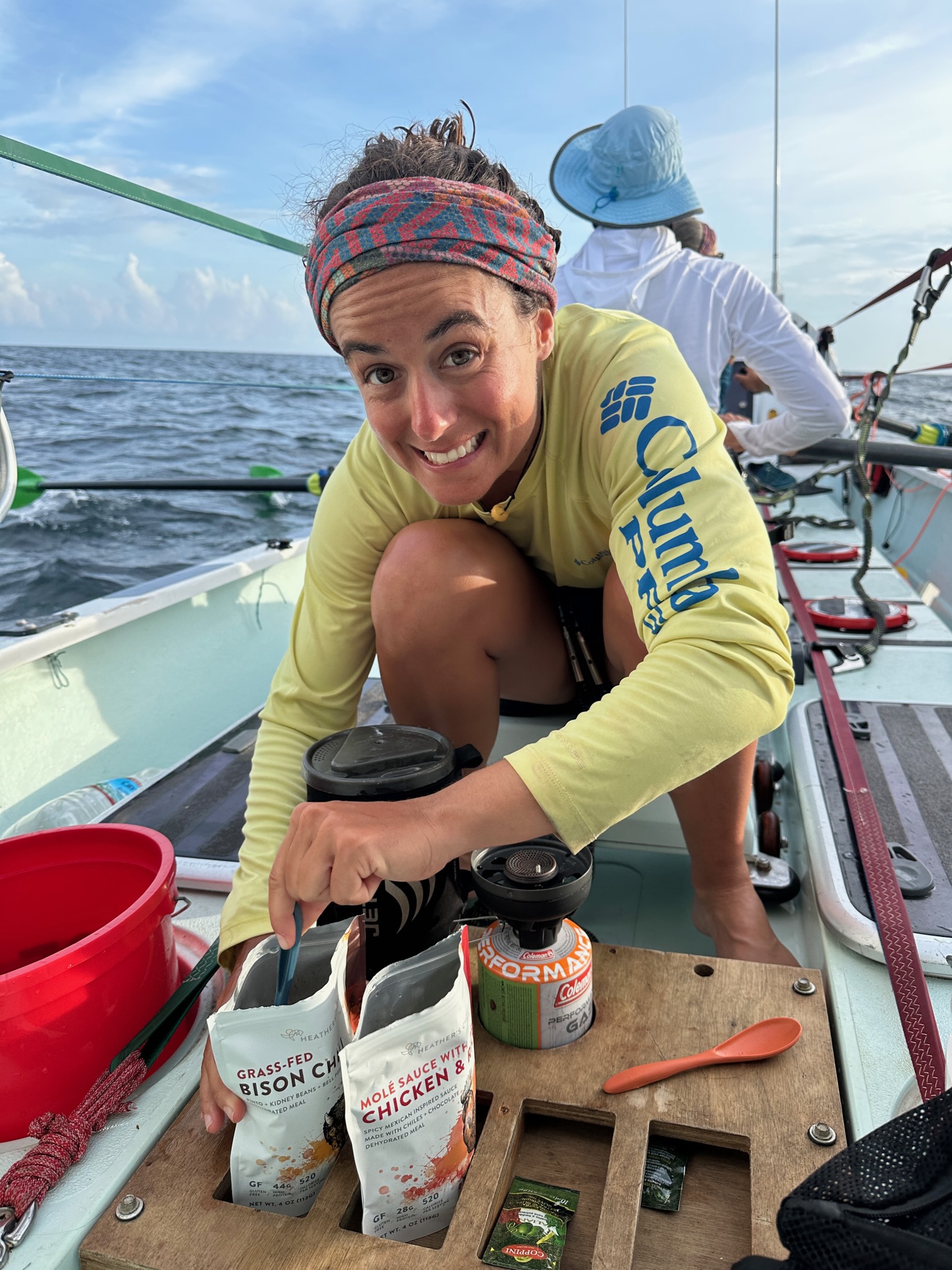
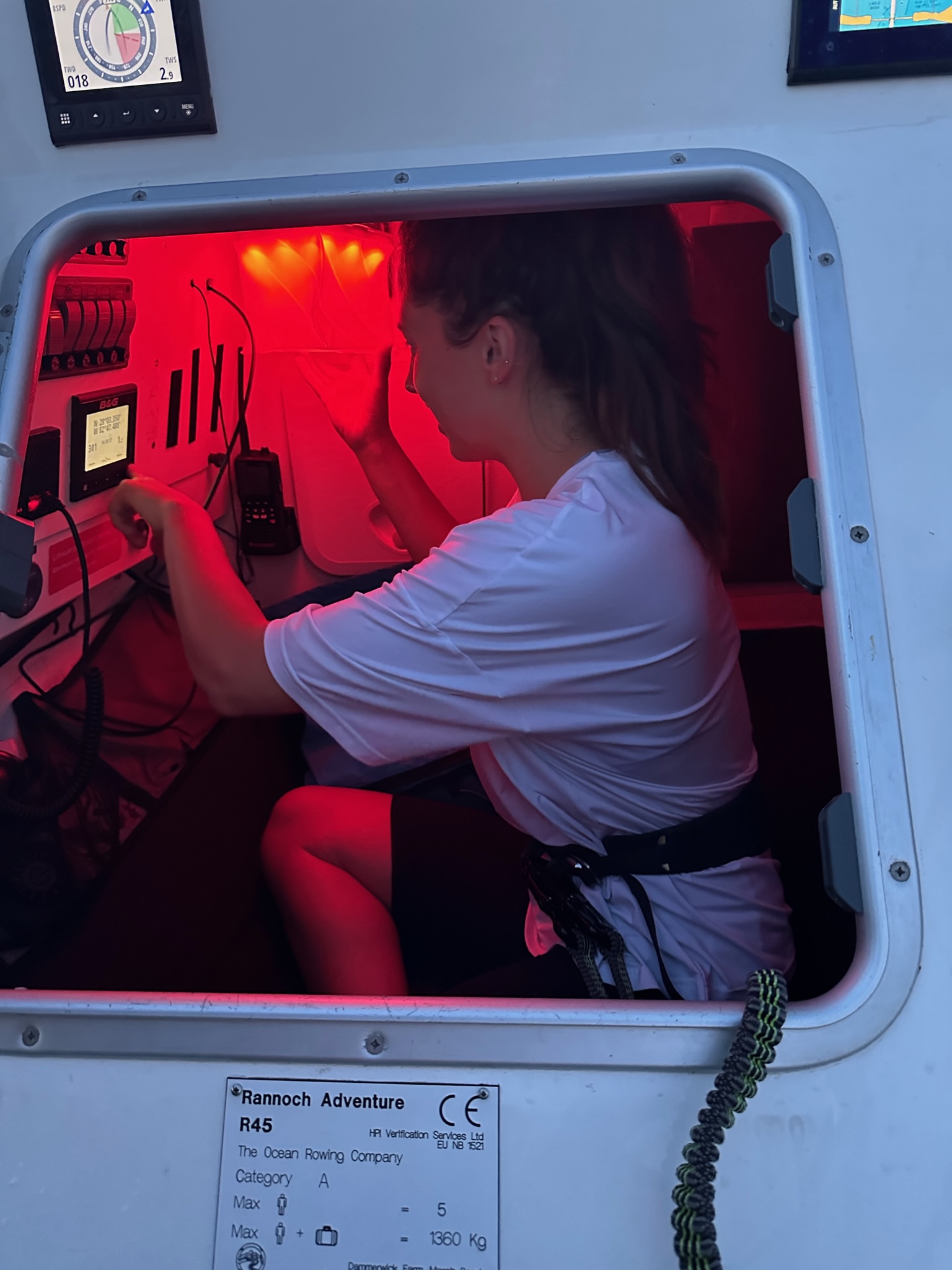
But our row is not just a test of our endurance. With our shared professional experiences comes a first-hand account of the myriad of pressures on marine ecosystems globally. We have documented many things from a changing ocean featuring widespread coral reef declines in the Caribbean to rapidly eroding coastlines along Alaska’s Arctic coast. We have collected evidence, written papers, taught students, and advocated for change as intertwined global and local stressors continue to drive ecosystem degradation, with tangible consequences to both human and marine life.
But amidst these challenges, we also find ourselves entrenched in a powerful community of changemakers advocating for a brighter future. Solutions to these challenges exist and are being acted on every day. Locally managed marine areas show us that centring local needs and priorities alongside traditional ecological knowledge enhances food security and community resilience, while regenerative aquaculture farms improve water quality and restore habitat. At global scales, we are transitioning to clean energy solutions and developing new technologies to track illegal fishing activities or create biodegradable materials.
Yet, a linchpin of these solutions is inclusivity: ensuring that all voices are brought to the table. Reflecting on my own journey, a critical moment was receiving a scholarship for an experiential field course in the Caribbean. There, I earned my scientific diving licence (and met Chantale and Lauren), a gateway experience that expanded my own perspective on career possibilities. These programmes can be transformative for early career scientists; yet they come with a hefty price tag. This excludes many from accessing the tools, connections, and opportunities that are often necessary for their professional next steps.
And it is abundantly clear that this exclusivity limits our ability to successfully understand and steward marine ecosystems. Diverse approaches and perspectives are fundamental to marine management, and limiting access to specific affluent demographics is a disservice to the very individuals, communities, and ecosystems that we support.
Access to opportunities
To help bring attention to this issue, we are raising funds through our row to sponsor scholarships for traditionally excluded students to access some of these experiential learning opportunities. Collaborating with institutions like the Bamfield Marine Science Center, GreenWave, and Shellback Expeditions, our mission is to help reduce the financial barrier for the next generation of ocean problem solvers.
But I have good news for you. You don’t have to row across an ocean to make an impact. You can prioritize voting for candidates who centre environmental justice, advocate for change at your institution to fund student opportunities, or financially support on-the-ground organizations doing the work.
As I row steadily on, I look up at the stars and watch the laughing gulls that have been our constant companions tonight swooping delicately overhead, their shadows merging with the surrounding blackness. I am 1 hour into my shift, and Chantale emerges sleepily from the stern cabin and swaps in for Lauren. We settle into a rhythm, our thoughts drifting ahead to the difficulties we will face in just a few short months. Three years of planning, preparing, and training have led us here, and I wouldn’t want to be in this boat with anyone else. Together, we can do hard things. One oar stroke at a time.
Noelle Helder (nhelder@alaska.edu)
Read more about the Salty Science team's stunning achievement here.
To follow along and donate to support Salty Science, go to https://saltyscience.org
Instagram, Facebook: saltysciencerowing
Podcast now available with Noelle Helder. Take a listen to The Marine Biologist Podcast.
